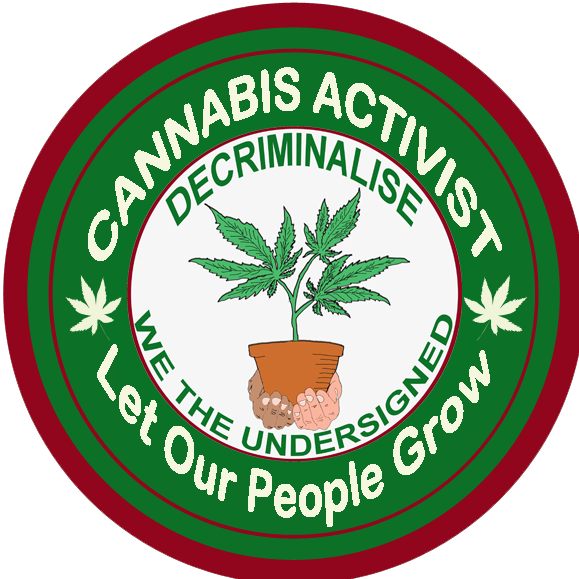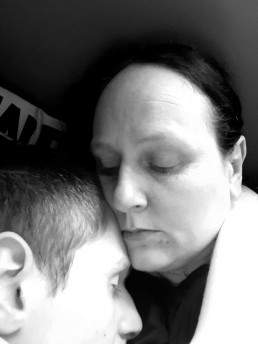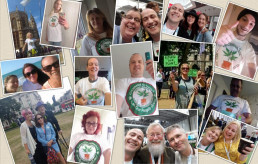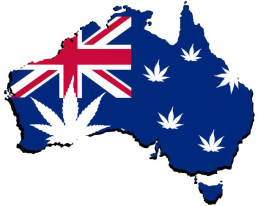Desperate for legal access to medical cannabis, Mother from Hull slams doctors for “playing God” with her epileptic son
Desperate for legal access to medical cannabis, Mother from Hull slams doctors for “playing God” with her epileptic son
When medical cannabis was legalised in the UK in November 2018, British patients desperate for legal access thought their long wait was finally over.
However, patients like James Walker, who suffers severe epilepsy, are still waiting for prescriptions for the medication on the NHS.
Now, Gina, 45, James’ mother, is speaking out about the delay, criticising doctors for “playing God” with her son’s life.
James was diagnosed with a rare form of drug-resistant epilepsy when he was just two-months old. Due to the severity of his condition, doctors told his family that they did not expect him to live past the age of 10. Defying all the odds, James has just celebrated his 21st Birthday.
Due to the severity of the seizures James has endured, he is not able to verbally communicate. James has only been able to communicate from the age of 16 with the assistance of ‘eye gaze technology,’ which allows him the ability to talk via a computer system.
According to Gina, every seizure James endures is “like running a marathon,” but displaying true courage, James has kept his smile going strong, maintaining his “cheeky sense” of humour.
Using Hull Live to share James’ incredible story of bravery and survival, Gina explained how traditional, pharmaceutical, medications did little to help relieve the brave boy’s suffering:
“James has tried every drug going to try and manage his epilepsy, but he’s had so many bad side effects with them.
“He had to start wearing glasses as one of the drugs affected his eyesight, and he’s had anaphylactic shock as well as stomach cramps and diarrhoea with others, and none have really brought his condition under control.
“The only thing that has brought James down from having 100 tonic-clonic seizures a day to around 20 is thanks to his VNS operations.
“The device works like a pacemaker and floods his brain with good electricity when he’s having a fit, but he wears them out fast and has already had three implants in five years, when they’re meant to last much longer.”
“I’m so angry as so many people like James need the cannabis oil but aren’t getting it – it’s unfair for doctors to be able to play God and decide who gets a potentially life saving prescription for it and who doesn’t.“
– Gail Walker, Medical Cannabis Warrior & Dedicated Mother
After years of suffering, James’ doctors finally realised that his condition was more extreme, upgrading the severity of his condition:
“He was only actually diagnosed at 15 with Lennox–Gastaut syndrome and up until then, he used to glaze over in his eyes and not engage as even though he’s not brain damaged, he couldn’t engage with us as his mind was there but it was trapped in his body.”
Parents of children with James’ condition experience the same pain:
“I spent the first ten years of James’ life planning his funeral, just seeing his life as being on an egg timer.
“I just existed rather than lived which, looking back, made me so angry and upset as it felt like we were just looking out for which seizure would kill him, rather than enjoying life with him.
“So based on the prognosis he was given, we are so happy that he’s got to his 21st birthday.
“People think we must get used to James having seizures but you never do, and they can be terrifying.
“When I get up on a morning, I put the fact that he could have a serious fit that kills him in the back of my mind, but now and again I can still get overwhelmed and teary, mainly out of frustration.
“But then I see James smiling even after his seizures and think it’s him going through it, not me, and if he can be brave, then so can I.”
However, there is a medication which has the potential to help alleviate some of the suffering the Walker family has been living through for the past 21 years: medical cannabis, specifically CBD:
“When I saw that medicinal cannabis oil could be prescribed for Lennox-Gastaut syndrome, I was desperate for James to try it to see if it would help him at all, as one fit could kill him if it pushes his heart too much.”
Unfortunately for James, an apparent medical postcode operates in in the UK, where patients in certain areas are being prescribed medical cannabis on the NHS, while others are left without:
“We were told that he was top of list in Hull for CBD oil in adults, but now we are getting mixed messages at to whether he can get it.
“I feel like James has just been overlooked because he’s older and that doctors are reluctant to prescribe it because it’s new, but it’s so frustrating as I just want James to try anything that could help him.
“It’s not like it’s wacky baccy that he will be taking, and there are even NICE guidelines to be followed, so I don’t know why some patients are having it prescribed in some areas of the country but not others.
“I’m so angry as so many people like James need the cannabis oil but aren’t getting it – it’s unfair for doctors to be able to play God and decide who gets a potentially life saving prescription for it and who doesn’t.”
Patients like James should not have to beg for access to a medication which has been proven to be safe and effective. Medical cannabis should be offered to all who stand to benefit, especially when all other pharmaceutical medications have failed to help.
A fresh take on British cannabis campaigning: We The Undersigned
A fresh take on British cannabis campaigning: We The Undersigned
Campaigning for wider access to cannabis in the UK has a long and fruitful history. Beginning as a movement for general access to cannabis as a recreational drug before evolving (or devolving depending on your perspective) into a more sophisticated and well-funded campaign specifically designed to enlighten and engage the British public into the wonderful world of the medicinal properties of the once demonised plant.
For many of those with a long history of involvement in the UK cannabis community, the recent involvement of large, multinational corporations in the push for legalising access to “medicinal” cannabis represents a new era of cannabis: a hijacking of a corporate, and sinister, nature.
Cannabis, especially “medical” cannabis, is quickly becoming one of the most lucrative markets in the world. As more and more countries legalise access to cannabis medications, the market of consumers grows, enticing entrepreneurs and campaigners alike.
In 2018, the legal cannabis market in the US was valued at $11.9 billion, with experts anticipating this to expand at a CAGR of 24.1% from 2019 to 2025, with the value of the market expected to reach $66.3 billion by the end of 2025.
This corporate take-over of cannabis has many campaigners, both those new to the game and the old school veterans, scrambling for a more equitable outcome: one where those who prefer to don an attire made from hemp have as much of a voice as their three-pieced counterparts.
Phil Monk is one of those voices. A veteran of campaigning for equal access to cannabis, regardless of whether the use is recreational or medicinal. “I must say that there is no such thing as ‘medical cannabis’,” Phil explains, “There is only cannabis. Well grown or poorly grown, in all its wonderful varieties.”

Like many involved in the UK cannabis campaign, Phil’s use of cannabis began when little was known about the true medicinal potential of cannabis:
“It was only in 2014 that I realised I had been consuming cannabis for therapeutic benefits after I began researching the effect of cannabis on human health.
“I began this research after developing a chronic pain condition and nearly being killed by pharmaceuticals.”
Rather than a gateway to harder drugs as many right-wing media associations would have you believe, cannabis is often used as an “exit drug” from addictive, and potentially life-threatening, pharmaceutical drugs, as Phil himself found.
Like many of those involved in grass roots campaigning for cannabis access, Phil is not just a campaigner, he is also a patient, whose life has been positively impacted by the use of cannabis as a medicine. Rather than subject himself to a life of addiction to pharmaceutical medications, cannabis allowed Phil to take control of his healthcare:
“I have used cannabis from 16 years old, used it before I became physically ill and before I started taking pharmaceutical drugs.

“When I did start taking pharmaceutical drugs to manage my health, they caused me life-threatening hospitalising side-effects, including a brain haemorrhage scare, mini stroke scare, bowel and bladder cancer scare, and a liver cancer scare.
“I have replaced the poisonous recreational drug alcohol and side-effects ridden pharmaceutical drugs with natural herbal cannabis and consume cannabis to manage my health, well-being and happiness and the symptoms of chronic myofascial pain from joint hyper-mobility spectrum disorder, bilateral ulnar impaction syndrome, depression and PTSD from childhood abuses.
“After the pharmaceuticals nearly killed me, I realised the recreational drug I had been using my entire life had done me no harm, realising it had been giving me many benefits.
“I made the informed health decisions replace prescribed drugs and alcohol with cannabis, and now risk 14 years in prison due to my beliefs and practices.”
There are nearly as many campaign groups operating in the UK as there are strains of cannabis. Many of these groups often serve only as a vanity project for their creator: to help them make a name as the “saviour” of cannabis in the UK. Their leaders and members sometimes seem more concerned with their public image than ensuring every person, regardless of their intention, can access cannabis without fear of prosecution.
We The Undersigned (WTU), Phil’s own cannabis campaign group, has been making a name for itself as one operating from a place of compassion and duty, successfully setting itself aside from the crowd.

“I did not decide to set up WTU. I never had any plan, design nor intention to ever found my own campaign group.
“We the Undersigned Human Sovereign Right Cannabis exists because of the response to my spur of the moment idea in March 2018.
“At the time several children and their suffering were in the news. Little Alfie Dingley, Murray Grey and Billy Caldwell.
“The plight of their parents combined with my own pain, misery and suffering infuriated me at the injustice of it all, so I decided to contact every human rights solicitor in the country seeking legal representation to raise legal action against the UK government and its so-called war on cannabis.”
Utilising the wealth of knowledge and experience available from the vibrant and diverse community of cannabis activists available to him, Phil began assembling a fresh take on cannabis activism: utilising the law to challenge the law:
“As I was a part of several other cannabis reform groups, I posted an invitation asking other activists and campaigners if they would like to undersign to my letter, making it a class action about all others rather than just little old me.
“The response was overwhelming.
“I had to create a group and, as I was asking people to undersigned by letter based on human rights to cannabis, the title of the group seem to make sense as ‘We the Undersigned Have Human Sovereign Right Cannabis.’ In hindsight this is a somewhat long title and thankfully we’ve been shortened to WTU.”
With the campaign to legalise cannabis exclusively for medicinal purposes gaining momentum, those with vested interests have begun to make their mark on the progress of the legalisation process, much to the disdain of those who have dedicated their youth and energies to ensuring anyone who needs or wants to access cannabis can do so.
Those who would stand to gain from cannabis being legalised as a medicine only obtainable through a costly prescription have been vocal about their intentions solely being on legalising these medications, rather than wider-access to cannabis as a recreational drug, as well as their desire to prevent patients growing their own plants to make their own medication.
“I must say that there is no such thing as ‘medical cannabis.’ There is only cannabis. Well grown or poorly grown, in all its wonderful varieties.”
– Phil Monk, cannabis warrior & founder of WTU
For campaigners like Phil, this is not an acceptable outcome of years of dedicated service to the cause.
“I do feel represented by other groups, so long as they support the right to grow your own as this is a fundamental part of our human rights cannabis and achieving ‘Herbal Independence Day’ from the extortionate pharmaceutical industry and uncontrolled cannabis market.
“WTU fights for the broader human rights issue of cannabis and not just a narrow medical cannabis issue.

Like many campaign groups, WTU relies solely on donations to fund their ambitious project to end prohibition of cannabis in the UK
“The central aim of WTU would be to see cannabis removed from the misuse of drugs act classifications and the schedules list completely. To repeal cannabis prohibition laws as there should be no criminal or civil sanctions against anybody or choosing to utilise or cultivate cannabis for their own health and well-being.
“So, We the Undersigned seek the decriminalisation of the beliefs and practices of the CannaCommunity and the legal regulation of the cannabis market in order to respect human rights and reduce potential harms.
“I must say that cannabis cannot be decriminalised or legalised. We the oppressed ‘CannaCommunity’ are criminalised, not the plant. Only the actions of the individual can be decriminalised or legalised as law controls individual’s actions not plants, potions nor pills.
“I do not support the Canadian model as it has brought in around 49 laws with which to control punish and profit from the cannabis consumer, creating another government cartel as in the UK.
“I would seek the full decriminalisation of the actions of possessing cultivating preparing or sharing and legal regulation of the cannabis market.
“In short, I would seek equality with the consumers the poisonous recreational drug alcohol. People should have the right to grow their own cannabis, and the right of free association in social clubs and to be able to purchase quality assured cannabis from regulated vendors regardless of the purpose of consumption, whether therapeutic, relaxation, creative, spiritual, tantric, meditation or nutrition.
“The false binary paradigm of medical vs recreational needs to be broken down.
“There are only 2 types of cannabis consumers really. Those who do and those who don’t.
“We should not have to become sick and dying before qualifying for access to cannabis.”
Armed with an impressively extensive knowledge of cannabis, and, perhaps more importantly, of the legal processes which have brought so much pain to cannabis consumers for decades, the WTU’s strategy for legalising access to cannabis is based on the very legal grounds which have prosecuted thousands of users.
“WTU are seeking to raise a human rights based legal challenge against the government’s political policy of ‘the war on cannabis,’ which is really a fraudulent ‘war on the CannaCommunity,’ Phil explains. “We have raised the legal fees to have our case reviewed by a top human rights barrister and we are now building the case in preparation for this.”
Leading experts are joining the WTU campaign, providing the group with much needed legitimacy.
”Professors Mike Barnes and David Nutt have also committed to writing expert reports,” Phil began, adding that the campaign group had already began their own study to help provide as compelling a case as possible in court. “WTU will support [them] with the anecdotal evidence gathered from the WTU case study surveys.”
Phil continued, “assuming the barrister advises that we have grounds for litigation, WTU aims to issue a Declaration of incompatibility between the Human Rights Act and the Misuse of Drugs Act to the Home Office.
“This is similar to what occurred in the South Africa Daga trial, although the UK legal system has different mechanisms which make it more difficult to challenge a law.
“The Home Office’s response to the Declaration of Incompatibility will then determine whether further legal action shall be required.”
Using the law to rectify the years of pain inflicted on thousands of cannabis users is not unique to the WTU, but there is an air of freshness to their cause. While the WTU does have a dedicated group of members, the structure to its organisation does not require fees, not that sustained membership-based campaigns are wrong for requesting donations to sustain their campaign.
There are several ways to get involved with the WTU campaign. Either through their official website, social media page or private group.
WTU has two fundraising campaigns, running solely on donations. The legal fundraiser can be found on their Crowd Justice page, and visit their merchandise for updates on their campaign fundraiser.
Simply, the WTU’s legal challenge will be a one-off, class-action lawsuit. One purpose. One mind.
“Freedom to farm for all,” Phil poeticallty ends.
Warning to Britain: Australian patients are still struggling to access legal medical cannabis
Warning to Britain: Australian patients are still struggling to access legal medical cannabis
Australia legalised cannabis for medical use two years before the Conservative Government caved in to public pressure to legalise access to the medication in the UK.
Despite this two-year head start, Australian patients are still struggling to legally access medical cannabis. Either their medical condition has not been included on the desperately small qualifying list, or they are unable to afford the tens of thousands of dollars for a private prescription.
To those familiar with the progress of medical cannabis in the UK, the Australian patients’ struggle to legally access potentially life-saving medication is eerily similar to the British struggle. While it has been officially recognised that medical cannabis is an effective and safe treatment for childhood epilepsy and MS, the medication is not available on the NHS.
Only a handful of prescriptions have been granted to patients on the NHS, with none of those being for full-spectrum (THC as well as CBD) medical cannabis.
Being prescribed medicinal cannabis in Australia, just as in the UK, involves a far more complicated process than being prescribed any other pharmaceutical medication. British and Australian patients cannot be prescribed cannabinoid-based medications by their regular doctor or GP. They must consult with a specialist.
In Australia, a doctor must be registered as an ‘Authorised Prescriber’ or be prepared to make an application on behalf of their patient through the TGA ‘Special Access Scheme’.
In Britain, the story is the same. Two private clinics specialising in medical cannabis have opened in 2019 to cater for the increasing demand for medical cannabis, one in Manchester, the other recently opening in London. Consultations in these clinics alone cost upwards of £200.
Families across the Commonwealth are being forced to pick between two impossible choices: somehow find the tens of thousands of dollars/pounds to cover the cost of the private prescription, or break the law.
Some families in the UK are forced to pick both.
Scottish mother, Lisa Quarrell and her son, Cole, who suffers (pharmaceutical) drug-resistant epilepsy, have recently made headlines across the UK for breaking the law to bring medical cannabis back into the UK.
Their story shares many similarities with patients in Australia.
”If it wasn’t for Jenny Hallam and that incredible cannabis oil that she gave us, [Ben] would have [died]. I will always be grateful.”
– Michael, Ben’s father and nurse
Sharing their story with 7news, Ben, who suffers Stiff Person Syndrome, a rare, “one in a million” condition, which causes extreme stiffness in his muscles as well as incredibly painful spasms, and his father Michael paint a picture which resembles that of a British patient trying to legally access medical cannabis.
“As someone who was very against it, I would say that medicinal cannabis has not only saved my life, but it’s given me life again.
“Five years ago, I didn’t expect that I was going to be seeing him above the ground.
”If it wasn’t for Jenny Hallam and that incredible cannabis oil that she gave us, he would have. I will always be grateful.”
In the eyes of Australian law, Jenny is as much of a criminal as a common thief. However, just like the countless cannabis heroes in the UK, Jenny risked her freedom to improve and, in some cases, save, the lives of patients like Ben by making and donating medical cannabis oil.
For this heinous crime, Jenny now faces up to nine years in Australian prison after she was pleaded guilty to drug charges.
Without Jenny, Ben’s situation looked bleak: how would he continue to access this life-saving medication?
Paying thousands of dollars a month is how.
Michael revealed the cost of the prescription:
“$1,695 in advance every three weeks to provide the only medication that has given my son any form of relief, as opposed to what I was getting from Jenny [for] free.
“The other option is I grow my own.”
These options are the same as those presented to British patients.
Tegan Appleby, 9, suffers a rare, drug-resistant form of epilepsy. Her three-month supply of medical cannabis costs her family £2,500.
Her family could break the law and grow their own, which would be significantly cheaper. It would also run the very serious risk of separating them from their daughter.
The progress of medical cannabis in Britain is currently running the same line as that of Australia, unless British politicians act to make the life-changing medication affordable to all those who need it.
Families should not have to put themselves in between a rock (paying £10,000s a year for a private prescription) and a hard place (illegally growing their own cannabis) for the sake of accessing a medication which has been globally recognised as safe and effective.
Politicians are becoming increasingly aware of the power of medical cannabis; now it is time they act with empathy to bring legal access to all who can benefit from medical cannabis.
Former Miss UK: “I just cured terminal cancer” with medical cannabis
Former Miss UK: “I just cured terminal cancer” with medical cannabis
The former winner of Miss UK and Ms Europe is winning her fight against brain cancer using medical cannabis.
Kerri Parker, 34, from Norwich, was first diagnosed with brain cancer in 2013. After a successful surgery to remove the tumour, the cancer returned in September 2018. British doctors suggested a course of chemotherapy and radiotherapy.
The former Playboy model rejected the treatments recommended by doctors, including chemotherapy and radiotherapy, in favour of cannabis, due to a fear that the traditional treatments could have had significant side-effects, including a loss of speech, memory and the ability to read and write.
Using the “Rick Simpsons oil” protocol, a 90-day treatment plan which requires using up to 1 gram a day of high THC cannabis oil a day, as well as changing her diet, Kerri has seen amazing success.
Telling her inspiring story to FEMAIL, Kerri explained how she is defying all odds by beating cancer with medical cannabis:
“I thought brain cancer would kill me, but now it’s not going to. Now I finally have a life – Ms World’s not my last pageant.
“I’ve proven them all wrong; doctors here told me cannabis doesn’t cure cancer and that it’ll kill me, they actually told me it would make it worse and that it only works in kids.
“They scared me so much I was ready to sign my life and career away to have chemo and radiotherapy, but not now.
“If I can shrink half my brain of cancer, I’ll shrink the other half. I’ll shrink it down so there’s not a single cell left that can ever replicate.”
Kerri’s explained how a recent CT scan showed “visible shrinkage” in the brain tumour, proving the medical cannabis treatment is working:
“It’s a visible difference, it’s only now showing in half of my brain when before it was nearly three quarters.
“Specialists in America are telling me it’s shrunk. The reality is, I just cured terminal cancer, I’m actually going to give myself a life.
“It’s disgusting that they’re keeping it from people over here, I’ve lost people to cancer and I didn’t need to.”
Medical cannabis allowed Keri to maintain a good standard of living. Her doctors believe that medical cannabis actually helped prevented seizures from the brain tumour, which might not have been possible while undergoing chemotherapy or radiotherapy:
“Doctors in America said I should have seizures because of how much cancer is in my brain, but they said the cannabis would have prevented that,’ she explained.”
“I’ve enjoyed quality of life. I still have a driving licence – I would have lost it if I’d had a seizure.
“I’ve never had any pain with my cancer. I’ve been training, I got my black belt, I got my rock climbing instructor course done. None of this I’d have been able to do.
“You have to have the mindset, diet, everything – it’s not just smoking a couple of joints. It’s not an easy route.
“I never knew I could get up to a gram a day – my mum would take a couple of drops and pass out on the spot. I was taking a thousand times that, I never thought my little body could get to those levels, and now I take it with ease.
“My tolerance is more than anyone I’ve ever met and I’ve never taken drugs in my life.”
“I’ve never had any pain with my cancer. I’ve been training, I got my black belt, I got my rock climbing instructor course done. None of this I’d have been able to do [without medical cannabis].“
– Kerri Parker, Ms Europe & Medical Cannabis Warrior
Rather than cause damage to her brain, Kerri believes the medical cannabis treatment actually improved her cognitive functions to better than before she was diagnosed with cancer:
“My maths is incredible, my recall, my creativity – I’m listening to music, I’ve never listened to music before. I’ve never loved art before, but things are becoming new in my brain which have enlightened me to think maybe I am shrinking this.
“The doctors are like, “No no no this is impossible”. They said to me I should have bad recall, but I sat for several hours having tests in intelligence and recall and I passed above a normal healthy brain.
“I said to them, ‘You can’t tell me that I’m dying and that there’s something wrong with this brain, this is the best brain I’ve never known, my intelligence is off the scale, and I know it’s because I’m training it.’
“But is it also because I’ve lived the last few years with three quarters of my brain full of edema, full of swelling containing cancer which formed a tumour last year.
“I wasn’t stupid or confused or forgetful, I just had none of my brain left, and now my brain feels remarkable.
“I feel like me again.”
The medical cannabis treatment has been so successful that Kerri, who was crowned Ms Europe earlier this year, will now be able to compete in the in Ms World next month:
“Now I’m eating again – I was so skinny and no dresses would fit me, and now the gown I’ve chosen is three sizes too big and I’m trying to eat a little McDonalds each day to put some weight on as opposed to my normal bodybuilder shred,’ she said.
“I thought it was going to be my last pageant and to me that’s too much pressure to win. If you’d have asked me two weeks ago I didn’t think I’d be on that stage, I wasn’t prepared, I was so ill.
“Now I’ve got two weeks to prepare, but I feel so confident I’m going to be on that stage a winner now, regardless of what happens.”
Kerri’s inspiring story adds to the ever-growing body of anecdotal evidence that cannabis can be used as a safe and effective treatment for a range of cancers.
Clinical evidence for the efficacy of medical cannabis in the treatment of cancer is still in its early stages, but there are a number of in-vitro studies which have found compelling evidence.
A study conduced at St. George’s University, London, “confirmed that cannabinoids are effective in killing leukemia cells, particularly when used in combination with chemotherapy treatments.”
While more research is needed before definitive conclusions are made about cannabis as a cancer treatment, stories like Kerri’s will continue to inspire others in a similar situation to take the “risk.”
British hemp farm, Hempen, has license to grow hemp for CBD revoked, threatening the future of the UK hemp and CBD industry
British hemp farm, Hempen, has license to grow hemp for CBD revoked, threatening the future of the UK hemp and CBD industry
Hemp has a long history in Britain. It was believed to be first cultivated as far back as 800 AD in England. In fact, hemp was integral to the success of the British navy. Hemp had such important to the navy that in 1533, Henry VIII made hemp cultivation the law of the land. Peasants could even be fined if they did not grow enough hemp.
Today, however, is a dark day for the British hemp industry: Hempen, a non-profit based in Oxfordshire, has had their license to grow hemp revoked by the Home Office.
Since it was established in 2015, to “harness the power of hemp to create rural sustainable livelihoods”, Hempen has been producing a variety of hemp products, such as organic hemp seed oil, before adding CBD products.
The “emotionally and financially shocking” announcement that the Home Office has revoked their license to grow hemp will have a significant impact on the livelihood of Hempen’s workers, as well as the non-profit’s overall operations.
In November 2018, the Home Office issued new guidance for producing hemp in the UK, clearly outlining that British Farmers would not be permitted to harvest hemp flowers for the purpose of manufacturing CBD oil. Under the new guidelines, British hemp farmers would only be allowed to grow hemp for its seeds and stalks.
In order to comply with the Hempen has just 24 hours to destroy all its current crop, devastating the company and its workers.
According to a press release by Hempen, the company has “been clear in the statements submitted each year to the Home Office around how the plant was to be used.” Until yesterday, when Hempen announced that their license had been revoked, the Home Office raised “no issues” with Hempen’s intention to manufacture the hemp they were growing into CBD products.
The Home Office had previously stated in writing that Hempen “should continue to act as though the license had been granted,” while the new license was pending. However, in their latest communications with the Home Office, Hempen were instructed to destroy their entire crop, contradicting the previous advice from the Home Office.
“Instead of capitalising on the booming CBD industry, the Home Office’s bureaucracy is leading British farmers to destroy their own crops and millions of pounds’ worth of CBD flowers are being left to rot in the fields.“
– Patrick Gillet, co-founder of Hempen
Hempen view the “highly punitive decision” as one which will harm the growing UK hemp industry, favouring multinational corporations over UK-based companies:
“This highly punitive decision puts UK hemp farmers at a disadvantage, where the most valuable part of the crop [the flower], which is used to extract CBD globally (except in the UK) is rendered worthless.”
Patrick Gillet, co-founder of Hempen, expressed his concern about what the announcement could mean for the future of the British hemp industry:
“In challenging economic times for British farmers, hemp is offering green shoots of hope as a rare crop that can pay for itself without subsidy.
“Instead of capitalising on the booming CBD industry, the Home Office’s bureaucracy is leading British farmers to destroy their own crops and millions of pounds’ worth of CBD flowers are being left to rot in the fields.
“The government should move the responsibility of regulating farmers over to DEFRA and legislate to stop our CBD spending being sent abroad and be used to secure the future of British farming.”
According to a Freedom of Information request, there has been a significant increase in the number of UK farms licensed to grow industrial hemp (defined as cannabis with 0.2% THC or less).
In 2017 there were 9 farms granted “low THC (industrial hemp) licenses. This doubled to 18 farms in 2018, corresponding with the massive increase in public interest in CBD.
It is likely that the majority of the new farms were established to capitalise on the booming UK CBD market. The news that the Home Office is revoking license to grow hemp for the purpsoe of manufacturing CBD could have a devastating impact on the future of the UK hemp/CBD industry.
Krick Allen, co-founder of the British Hemp Association and CEO of Amberstalk, a hemp foods company based in London, added:
“We need to encourage more British farmers to start growing hemp by making it easier for then to get these licences. We can do this by transferring licensing regulations from the Home Office to DEFRA. In doing so, we can treat hemp like a traditional agricultural crop and would be able to utilise every part of the plant.
“There is an element that other companies from other countries like the US, China, Australia etc. would come to the uk eventually.
“It’s difficult to say, but we believe that there is a huge opportunity for British Hemp to flourish e.g. in foods, textiles, machinery, research, etc. Loosening the laws will help us compete with a global influences.
“Personally, I believe that more people should just #UseHemp. The more we use, the more we grow, the more we grow the better it is for our planet. It is the the worlds more sustainable crop and the more accessible it is the better.”
Hempen is now seeking legal advice to appeal the decision.
Conservative-funded survey finds half of British public now support legalising recreational cannabis
Conservative-funded survey finds half of British public now support legalising recreational cannabis
A Conservative-funded YouGov poll has found nearly half of British adults now support the legalisation of recreational cannabis.
The Conservative Drug Policy Reform Group (CDPRG), which commissioned the poll, surveyed 1,690 people on their views relating to the cannabis, finding “clear and growing appetite” for a more liberal approach to drug policy in the UK.
According to the survey, 48% of voters favour legalising recreational use of cannabis, while only 24% oppose the potential measure, indicating a clear surge in favour of ending the prohibition of cannabis in the UK.
Unsurprisingly, public support for medical cannabis is now at a all-time high: 77% of respondents believe it should be permitted, with only 4% of the public saying they oppose the UK’s new medical cannabis laws.
The survey also found strong evidence to suggest that the vast majority (76%) of Britons would use medical cannabis if they were suffering from a medical condition where cannabis-based medications have been proven to benefit.
Only 30% of the public support the British Government’s current policy on cannabis, while 55% favour adopting “softer” government policies (27% support full legalisation, 28% support decriminalisation).
“This survey shows the government and politicians are significantly behind the public’s thinking.“
– Rob Wilson, CDPRG’s Chief Executive
The public’s change in opinion on cannabis may have been influenced by the Government’s failure to control the distribution of cannabis by drugs, as 79% said they believed the government was “struggling” to cope with drugs. The majority (7/10 respondents) believe that prohibition has failed to reduce harm.
Half (50%) of respondents said they believed that regulating the sale of cannabis would provide more protection to young an vulnerable people, while only 23% said that regulating cannabis would cause “more harm” to society.
Discussing the results of the survey, Rob Wilson, CDPRG’s Chief Executive and a former Tory minister, said:
“This survey shows the government and politicians are significantly behind the public’s thinking.
“It illustrates the widening gulf between the stubborn, decades-old policies of blanket prohibition and the developing attitude of millions of voters willing to apply new approaches focused on improving harm reduction and healthcare outcomes.
“Illegal drugs are doing terrible damage to families and communities throughout the country. Thousands of people are dying, many hundreds of thousands of young people are taking drugs which they neither understand nor know what they contain. At the same time violent criminal gangs are making massive financial gains while preying on the weak and vulnerable.
“The findings of this survey demonstrate the urgent need for policymakers and government to start to rethink policy as part of an open, fully informed and evidence-based debate on the future of drugs policy.”
Mike Barton, the former chief constable of Durham Police, added:
“We simply cannot arrest our way out of drug problems. Many of us in law enforcement have long been calling for a public health approach to drugs.
“These [poll] figures show the British public agree criminalisation isn’t the solution to drug problems. A public health approach could reduce harms for users as well as freeing up police resources to tackle serious crime.”
With the twice as many Britons now supporting legalising cannabis for recreational use than those who oppose it, is it time the British Government represented those it is represents and finally legalise and regulate the sale of cannabis in the UK?
References and further Reading
New research finds patients are choosing cannabis over opioids to treat chronic pain and insomnia
New research finds patients are choosing cannabis over opioids to treat chronic pain and insomnia
New research from America has found further evidence that cannabis can safely and effectively help treat pain and insomnia.
The study, published in Journal of Psychoactive Drugs, found significant anecdotal evidence that people are increasingly replacing their pharmaceutical medications, often opioid-based, with medical cannabis to help them sleep and reduce pain.
Researchers at The Albert Einstein College of Medicine conducted a review of 1,000 medical cannabis patients to investigate the impact of legalisation in Colorado.
The study’s lead author, Dr Gwen Wurm, and her research team used survey data from people who purchased cannabis from two retail stores in Colorado, US, where it is legal for both medical and recreational use.
The questionnaire itself consisted of questions concerning sociodemographic factors (age, gender, race/ethnicity, education level, history of military service), self-reported health status, use of cannabis for pain relief, and use of cannabis to promote sleep.
Of all respondents, 74% reported using cannabis to promote sleep, with 65% reported using cannabis to relieve pain.
For those using cannabis to relieve pain, 80% reported that cannabis was very or extremely helpful for relieving pain. Amazingly, 82% reported reducing or stopping use of over-the-counter, pharmaceutical medications. Among respondents taking opioid analgesics, 88% reported reducing or stopping use of those medications.
For those using cannabis as an aid for sleep, 83% found cannabis to be very or extremely helpful for sleep. Similar to those taking cannabis for pain relief, 87% of patients using cannabis to treat insomnia reported reducing or stopping use of over-the-counter medications, with 83% claiming they were able to reduce, or stop altogether, use of those medications.
Discussing the results of the study, Dr. Wurm mentioned why replacing opioid-based medications with cannabis could help save lives:
“Approximately 20% of American adults suffer from chronic pain, and one in three adults do not get enough sleep.
“People develop tolerance to opioids, which means that they require higher doses to achieve the same effect. This means that chronic pain patients often increase their dose of opioid medications over time, which in turn increases their risk of overdose.
“In states where adult use of cannabis is legal, our research suggests that many individuals bypass the medical cannabis route (which requires registering with the state) and are instead opting for the privacy of a legal adult use dispensary.
“Nonsteroidal anti-inflammatory drugs (NSAIDs) such as ibuprofen cause GI bleeding or kidney damage with chronic use. Paracetemol (Acetaminophen) toxicity is the second most common cause of liver transplantation worldwide, and is responsible for 56,000 ER visits, 2600 hospitalizations, and 500 deaths per year in the U.S.
“The challenge is that health providers are far behind in knowing which cannabis products work and which do not. Until there is more research into which cannabis products work for which symptoms, patients will do their own “trial and error,” experiments, getting advice from friends, social media and dispensary employees.”
Given the choice, patients with legal access to cannabis are apparently optting to use cannabinoids over opioids.
Researchers believe this is because cannabis is non-toxic, meaning it is impossible to overdose on. There are also limited side-effects associated with cannabis, unless you have a genetic predisposition to psychosis. For many patients, the experience of a “dry-mouth” is far more tolerable than “brain fog” or a breakdown of vital organs, which opioid users can suffer.
References and further Reading
https://www.tandfonline.com/doi/full/10.1080/02791072.2019.1626953
Survey finds medical cannabis helps relieve pain in over 90% of arthritis patients
Survey finds medical cannabis helps relieve pain in over 90% of arthritis patients
A new study has found anecdotal evidence that medical cannabis, including CBD, is helping relieve pain in arthritis sufferers.
CreakyJoints, a part of the nonprofit Global Healthy Living Foundation, conducted a survey of more than 1,000 arthritis patients to “delve deeper into their usage of cannabis and CBD.”
In research presented at the 2019 Annual European Congress of Rheumatology (EULAR) meeting in Madrid, Spain, CreakyJoints presented 1,059 patients with arthritis a 77-item survey to delve deeper into their usage of marijuana and CBD.
The average age of respondents was 57, with the “vast majority” being female. Patients surveyed were longtime sufferers of arthritis; the average time since they were diagnosed was 14 years.
Most patients surveyed had either rheumatoid arthritis (46%) or osteoarthritis (22%). Others had psoriatic arthritis, fibromyalgia, and ankylosing spondylitis.
Most patients (77%) reported being in “fair/poor health” (based on a standardised survey instrument), with only 29% reported that they were “satisfied” with their current treatment plan, indicating a potential failure in conventional medications’ ability to adequately help patients live a more normal life.
Potentially due to patient dissatisfaction with their current treatment plan, over half (57%) of those surveyed had tried medical cannabis to help their symptoms.
Amazingly, more than 90% claimed that medical cannabis did help ease their pain. The survey found evidence that full spectrum cannabis offers slightly more relief than CBD-isolated medications: 97% of people who tried cannabis said it improved symptoms, while 93% of people who tried CBD said it improved symptoms.
Patient surveyed reporting using cannabis or CBD to treat a wide variety of symptoms and side effects of living with arthritis, including, but not limited to:
- Pain
- Inability to sleep
- Relaxation
- Depressed mood
- Nausea
- Physical function
- Fatigue
“Anecdotally, and via this survey data, we know that there are many people with arthritis who benefit from marijuana and CBD products.”
– W. Benjamin Nowell, PhD, Director of Patient-Centered Research at CreakyJoints
The survey also found a growing disconnect between patients and their doctors, with patients being forced to take their healthcare into their own hands due to a lack of action from their medical professionals.
Nearly half of patients (45%) said they started using cannabis or CBD to address arthritis symptoms they have despite taking already taking pharmaceutical medications prescribed to them.
Just two-thirds of patients reported telling their health care provider about their cannabis or CBD use. This may, in part, be explained by the residue impact of years of decades anti-cannabis propaganda peddled by world Governments. Patients may be embarrassed to admit they are getting relief for a medication deemed to be a ‘recreational narcotic’ by many in society.
Most of the patients who did tell their healthcare provider (58%) claimed that their medical professional did not even consider this when making treatment changes nor offer advice about safety, effectiveness, or dosing.
More than half (54%) of patients wanted to get more information on the medical properties of cannabis and CBD from their doctor. Potentially due to a lack of training and education on the importance of the Endocannabinoid System in regulating the human body.
Discussing the results of the survey, W. Benjamin Nowell, PhD, Director of Patient-Centered Research at CreakyJoints, expressed that while the results of the survey offer support to expanding access to medical cannabis, further research will be needed into how cannabis interacts with pharmaceuticals patients are already taking before steps are taken to expand access:
“Anecdotally, and via this survey data, we know that there are many people with arthritis who benefit from marijuana and CBD products.
“However, we have to temper our potential excitement about adding these products to an arthritis management strategy because there is so much yet to learn about how these supplements interact with people’s prescribed and over-the-counter medicines and if, in fact, they can be proven to positively impact a person’s experience of disease and symptoms,”
“It’s vital that marijuana and CBD products are tested for their safety, dosing, and effectiveness in randomised controlled trials, which are the gold standard for understanding the risks and benefits of treating disease.
“In the meantime, we encourage people with arthritis to openly communicate with the health care team about their use of these products so it can be part of their health history and taken into account when making decisions about future care.”
References and further Reading
https://creakyjoints.org/eular-2019/medical-marijuana-cbd-usage-arthritis-patients-study/
First private medical cannabis clinic to open in London, promising faster access for patients
First private medical cannabis clinic to open in London, promising faster access for patients
London is about to get its first private medical cannabis clinic.
The Medical Cannabis Clinics – London will be the second private clinic in the UK offering medical cannabis to its patients.
European Cannabis Holdings Medical (ECH) opened its first clinic in the UK in Manchester (The Beeches) in March this year, marking a new era for medical cannabis in the UK.
ECH’s backers claim that the clinic will offer a “lifeline” to patients who desperately need legal access to regulated medical cannabis products, but have been unable to get a prescription on the NHS due to heavy restrictions placed on medical professionals by current guidelines.
Cannabis was legalised for medicinal use in November last year, but only specialist practitioners, or GPs with permission from a specialist, can currently prescribe it. Due to these restrictions, there has not been a single prescription granted for THC on the NHS.
According to the British Government, evidence for the efficacy and cost-effectiveness for medical cannabis is “embryonic,” despite countless studies proving its success in treating a wide variety of medical conditions.
A review of Nice guidelines is expected to be published in the autumn and will determine whether medical cannabis should be allowed on the NHS.
ECH’s London clinic will have a GP who can assess patients and refer them to an on-site specialist with the power to approve a prescription. Cannabis treatments will only be offered where conventional, pharmaceutical, treatments have failed.
The clinic will offer “potentially life-changing” treatment for a variety of medical conditions, including multiple sclerosis (MS), epilepsy, Alzheimer’s, arthritis and Parkinson’s.
Professor Mike Barnes, ECH’s Clinical Director, commented:
“This clinic will represent a lifeline to the thousands of patients who have found other treatments ineffective.”
There is clearly a demand for medical cannabis amongst patients in the London area, as more than 150 people are believed to already have signed up for the clinic’s waiting list.
There is a devastating gap in the market for medical cannabis in the UK.
Patients urgently in need of medical cannabis either have to find £10,000s a year for a private prescription like those offered by private clinics like the ECH’s, or are forced into a life of crime, either as a grower or a customer of the Black Market.
Hopefully, Nice will issue guidelines which recommend medical cannabis should be on the NHS as a “first option” for any medical condition it has been proven to help.
There is a wealth of research proving the efficacy and safety of medical cannabis emanating from countries like Israel and the US. British researchers are decades behind these countries in terms of cannabis research. Instead of relying on studies conducted in the UK, which are few and far between due to years of restrictions placed on cannabis due to its Schedule I status, researchers in the UK could learn from their foreign counterparts.
Private prescriptions run the risk of bankrupting families desperate to find relief for their loved ones. Denying these patients access to a medication which has been proven to work offers no benefits to society.
For now, clinics like ECH – London have to plug this gap. Whether it will be sustainable for patients to pay £10,000s a year for their medication is another question altogether.
Study finds 73% of Colorado cancer doctors see cannabis as medicine, but over half still ‘uncomfortable’ prescribing it
Study finds 73% of Colorado cancer doctors see cannabis as medicine, but over half still ‘uncomfortable’ prescribing it
Researchers at the University of Colorado have found that while the vast majority of cancer doctors view medical cannabis as a ‘beneficial’ treatment for cancer patients, they are still uncomfortable prescribing it due to a lack of education and training on cannabis.
The new survey, from the University of Colorado Cancer Centre, questioned 172 health professionals on their views on medical cannabis. 73% said they “believe hat medical marijuana provides benefits for cancer patients.”
However, 53% of respondents said they did not feel comfortable recommending cannabis to their patients, due to a lack of received education and resources for licensed medical cannabis products.
The study’s lead author, Dr. Ashley E. Glad, told the University of Colorado’s Colorado Cancer Blogs that a lack of available training for medical professionals is the most likely contributing factor:
“We asked and most providers didn’t train in a state where medical marijuana was legal.
“We need to adapt our healthcare education to include this, and also offer trainings on medical [cannabis] to current providers.”
Another potential contributing factor for doctor’s lack of confidence in prescribing medical cannabis is their concern about the legal and professional consequences of recommending cannabis, particularly those operating in states with limited or no medical cannabis programs.
Inconsistent dosing of cannabinoids also contributed to the doctor’s unease about recommending medical cannabis to their patients. Glode explained:
“The issue is it’s not regulated – a dispensary might say a product has this much THC and this much CBD, but no one is testing that for sure
“Then from a consumption perspective, inhalation and smoking is the least preferred due to possible damage to the lung.
“So many doctors recommend edibles, oils, and tinctures, but we still don’t have good data comparing dosage across these forms.”
Interestingly, 68% of the doctors claimed they learned more about medical cannabis from their own patients than they did from received training, medical journals or conferences; indicating a potentially serious failure in the education system producing America’s medical professionals.
The medical profession needs to keep in line with modern trends. As the body of evidence supporting the argument that cannabis should be offered as a first-response, rather than a last-resort, for cancer patients, so must the medical profession’s understanding of cannabis.










